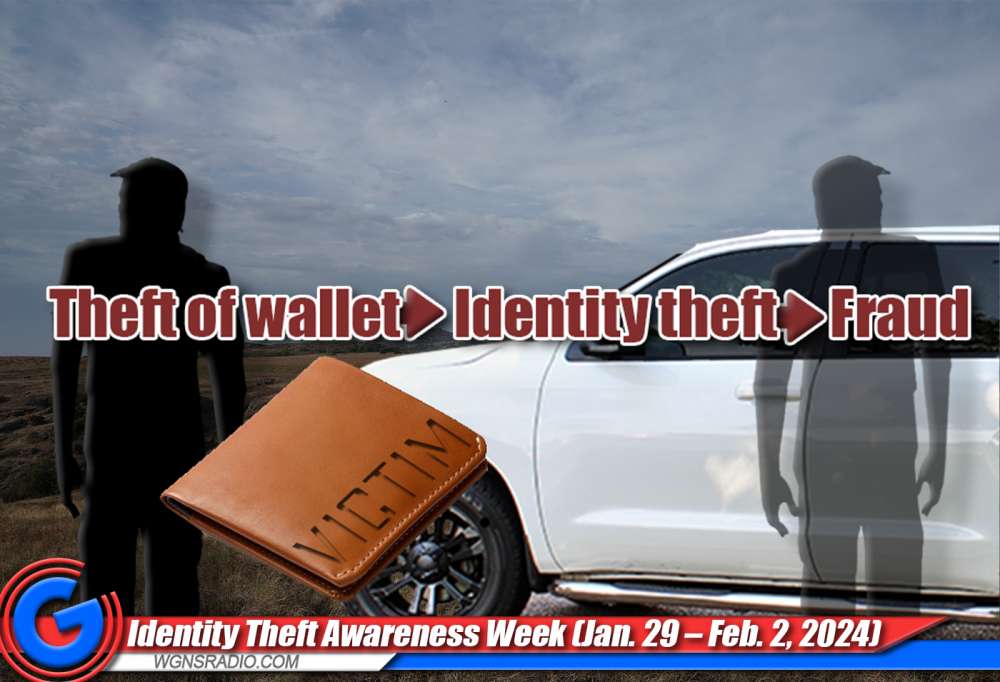The Tennessee Department of Commerce & Insurance’s (“TDCI”) Securities Division and the Tennessee Attorney General are highlighting Identity Theft Awareness Week (Jan. 29 - Feb. 2, 2024) to help Tennessee consumers avoid identity thieves’ tricks and traps.
During Identity Theft Awareness Week, consumers can focus on ways they can better protect themselves from the growing problem of identity theft. The Federal Trade Commission’s Sentinel Network identified over 16,000 instances of identity theft reported across Tennessee in 2022 in their most recent Sentinel Report.
“In the hands of an identity thief, technology can be used as a weapon to perpetrate scams that can cause headaches and, in a worst-case scenario, ruin someone’s credit and finances,” said TDCI Commissioner Carter Lawrence. “Because identity theft can lead to significant financial damage, it’s crucial that Tennesseans take steps today in order to protect themselves and their loved ones from identity theft.”
“Every Tennessean, regardless of age, can become a victim of identity theft,” Attorney General Jonathan Skrmetti said in a statement. “Thieves are more sophisticated than ever and have a variety of methods to steal your information, whether it's online, over the phone, or in person. Identity theft victims will be the first to tell you that the crime not only hurts financially, it violates your sense of security in a really personal way. Identity theft is creepy. I urge all Tennesseans to read the tips provided by the Tennessee Department of Commerce & Insurance and the Attorney’s General Office to avoid becoming the next victim.”
During Identity Theft Awareness Week, TDCI and the Attorney General remind consumers to be vigilant and focus on identity theft detection and prevention methods.
Establishing a Trusted Contact
-
To combat potential investment fraud from occurring, senior financial investors are urged to provide their financial firms with a trusted contact.
-
A trusted contact may be a family member, attorney, accountant, or another third party who you believe would respect your privacy and know how to handle that responsibility. One or more trusted contacts may be established.
-
“Having one or more trusted contacts provides another layer of safety on your account and puts your financial firm in a better position to help keep your account safe,” said TDCI Assistant Commissioner for Securities Elizabeth Bowling. “Naming someone as a trusted contact does not give that person the authority to act on your behalf, execute transactions, or reengage in activity in your account. If you do decide to name a trusted contact, you will want to reach out your trusted contact in advance to let them know.”
-
A trusted contact may be asked to confirm your current contact information, health status, or the identity of any legal guardian, executor, trustee, or holder of a power of attorney. U.S. broker-dealers are required to provide a written disclosure that explains these details.
Using A Credit Freeze
-
A credit freeze, also known as a security freeze, is a free tool that allows consumers to restrict access to their credit reports, making it more difficult for identity thieves to open new accounts. In 2017, Tennessee lawmakers passed a law giving parents and guardians the right to freeze the credit of a minor under 16 years of age or an incapacitated person under the care of a guardian or conservator at no charge. A credit freeze does not affect your credit score.
-
Even under a credit freeze, your credit report can be released to existing creditors or to debt collectors acting on their behalf.
-
Credit freezes do not prevent government agencies from accessing your credit report in response to a court or administrative order, subpoena, or a search warrant.
Avoiding Identity Theft Scams
-
Scammers frequently target seniors for identity theft. To prevent identity theft scams, remember:
-
Never buy an insurance policy, make an investment, or give money to a stranger who contacts you or visits you unannounced.
-
Shred all paperwork containing any identifying information, healthcare information, banking information, or passwords.
-
Monitor bank and credit card statements.
-
Monitor your credit report.
-
Use direct deposit for benefit checks to prevent checks from being stolen.
-
Never give your credit card, banking, Social Security number, Medicare number, or other personal information over the phone, unless you initiated the call.
-
If someone calls you and threatens you with arrest or harm unless you pay them via wire transfer or a gift card, hang up immediately. You’re dealing with a scammer. Report the call to your local law enforcement agency.
Resources
-
Questions about an investment? Tennessee consumers can contact TDCI’s Securities team by phone at (615) 741-2947 or 800-863-9117 (Toll Free) or by email at securities.1@tn.gov.
-
To learn more about Establishing a Trusted Contact, visit https://www.tn.gov/commerce/blog/2021/9/30/the-importance-of-establishing-a-trusted-contact.html, contact the Securities team by phone at (615) 741-2947 or 800-863-9117 (Toll Free), or email securities.1@tn.gov.
-
The Division of Consumer Affairs (DCA) works to handle consumer complaints and educate consumers on the latest scams and threats that could cause harm. To file a complaint against an individual or a business entity, you can complete a complaint form here. Contact DCA at (615) 741-4737 or toll free inside Tennessee at (800) 342-8385.





